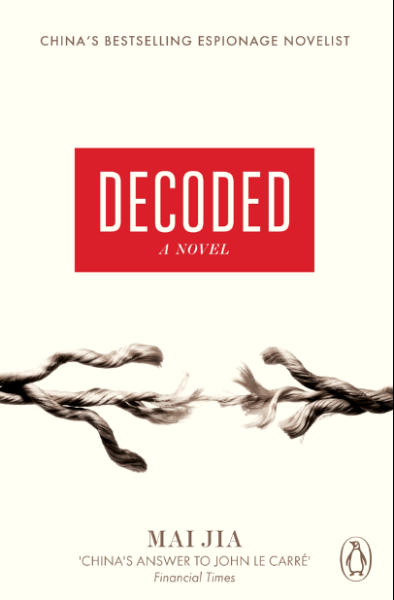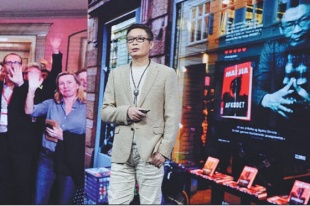Finding a new secret to success


Mai forged his nationwide reputation in 2008 after winning the Mao Dun Literature Prize, the country's highest literature award, for his novel In the Dark, which explores the lesser-known stories about the Chinese national security department during the mid-20th century.
His books Decoded and The Message, which both revolve around the same subject, cemented his position as an influential spy-genre writer, and numerous popular series and films have been adapted from his novels. For example, a new drama series of The Message is due to be aired by Tencent later this year, despite having been adapted for the screen several times before.
Nevertheless, the author seems to be dissatisfied by just feeding the market for his domestic readership. He has a vision to make Chinese literature more popular on the global stage.
"The highest achievements of modern Chinese literature are no less important than their Western counterparts," he says. "However, for a long time, the stereotypes about Chinese literature were that they always centered around the countryside, political suppression, the lives of the poor, and so on."
Mai vows to change all that.
His works have been translated into more than 30 languages. According to him, more than 30,000 copies of Decoded have been sold in the United States (by publisher Farrar, Straus and Giroux) the United Kingdom (by Penguin Books) and Spain (by Planeta Group), respectively.
"I don't think there is an easy path to achievement," he says. "However, the reason why Chinese authors are gaining more interest overseas is easy to explain: Our country is getting stronger and the rest of the world wants to learn more about it. Literature is a shortcut to understanding a nation."
For example, Decoded, whose story spans from the 1930s to the 1960s, was first published in Chinese in 2002. It remained unknown abroad for more than a decade until it became a phenomenon at the London Book Fair in 2014, where its translation rights were sold to 19 overseas publishers at the fair. The book has now been published in 33 languages worldwide.
In 2017, it was listed by the Daily Telegraph as one of "the 20 best spy novels of all time". The book was even picked up by Penguin Classics, an imprint of Penguin Books. Mai is the first contemporary Chinese writer to have earned the privilege.
"This means my book will be put on the British Queen's bookshelves," he says, half-jokingly. "She may have lots of books to read, but I'm waiting for the day when she opens my book and gets hooked on it, just like Barack Obama did when he read The Three-Body Problem."
Obama was publicly vocal about being a fan of the Chinese sci-fi novel, which was written by Hugo Award-winner Liu Cixin. It remains one of the most successful contemporary Chinese novels in the global market to date. Mai says nearly one million copies of the book have already been sold in the United States, and nearly half million in the United Kingdom.
"We writers dream about spreading Chinese culture abroad," Mai says. "Liu had the same dream, and he made it come true."
Nevertheless, Mai also opposes the growing trend for writers who deliberately cater to the tastes of their overseas readers.
"A work can only be successful abroad if it is sincere in its exploration of human nature in-depth," he says. "It should neither feed the desire for novelty in Western audiences, nor match their ideologies.
"After all, literature is about nurturing people's souls as well as their happiness," Mai continues. "In these terms, China and the West share a similar resonance, and there is no difference between the past and today."
He points to the importance of reflecting on the complexity of human life through literature.
"Our stories must be Chinese," he says. "But the characters in the stories belong to the entire world."



































